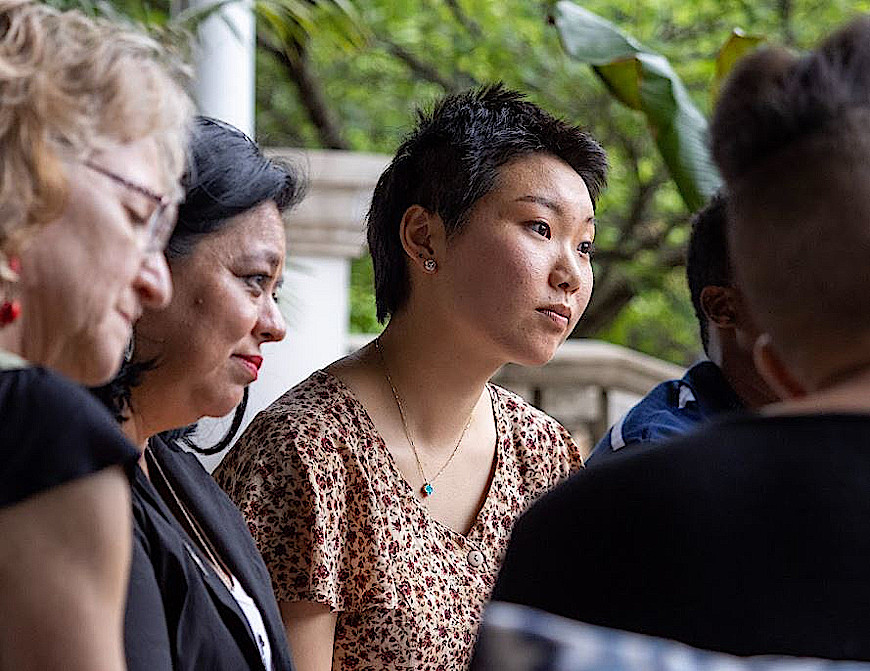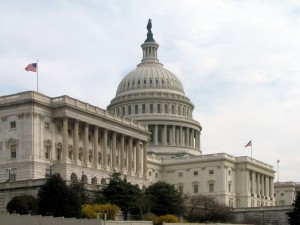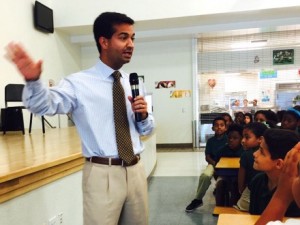By Katie Zakrzewski
As CCL sets out with an expanded policy agenda, one of our focuses this year is to expand our volunteer base as well through carefully planned outreach. Last month, we highlighted the importance of presentations to recruit volunteers and helped them get plugged in. Another crucial component of that outreach to new volunteers is making sure that they feel at home and have a place at the table through inclusion.
Danielle Whyte is CCL’s National Chapter Development Intern, who has led multiple diversity outreach workshops and presentations in CCL’s regional groups, in CCU training, and as part of a workshop at the CCL December 2022 conference. The name of Danielle’s workshop is “Diverse and equitable outreach and retention: Laying the foundations and building a culture that is healthy and inclusive.”
“When we think about issues of intersectionality, we have to focus on the environment we’re living in, because if we liberate folks without creating a healthy environment, our work might be in vain,” Danielle explains. “Why onboarding? Why engagement? I think my lived experience with CCL is an example of onboarding done right. I felt that immediate human connection, I felt seen in regard to my identity, I felt seen holistically. That’s what I hope to do for all chapters across the nation.”
Danielle’s presentation centers around three points: conducting equitable outreach, fostering inclusive chapter environments, and cultivating chapter cultures that retain. Danielle emphasizes that to ensure new volunteers feel compelled to join, get familiar with CCL, and remain with CCL, everyone must feel welcome.
A diversity, equity, and inclusion dinner party
Danielle uses the analogy of a dinner party to convey what a CCL chapter should strive to replicate.
“I’d like to invite you all to a dinner party,” Danielle says, setting the scene. “I’ve set the table. Let’s look around.”
Regarding diversity, Danielle asks, “Who is at the table? Who is given a seat?”
In regards to equity, Danielle asks, “Is everyone being served to meet their needs? We should meet folks where they are, not where we want them to be. We can give them space to flourish if their needs are met.”
Regarding inclusion, Danielle asks, “Is the dinner party accessible? Were the invitations translated into the languages that folks speak? Does everyone have a seat? No one should have to bring a folding chair to a dinner party.”
Within the context of a CCL chapter, Danielle creates an image of diversity, equity, and inclusion.
“Ask yourself — what identities and experiences are present among my chapter members? Are there resources, support systems, or tools for each chapter member to bring their fullest self? Is my chapter environment enabling all members to flourish?”
The ‘You’ in Outreach
Danielle emphasizes that for outreach to new volunteers to be effective, we have to understand where we are and where others are around us socially. She emphasizes that everywhere you go, there is the opportunity to engage with other cultures and new people — and the potential for people to join CCL to fight climate change.
“Our chapters need to be reflective of the people around us impacted by the issue of climate change. We can’t tell others that we want them to join us and then make them work around our schedules or norms. When we’re grounded in our mission, we’re better able to accomplish our goals.”
Nurturing as part of welcoming
Danielle shares that there’s a difference between thanking someone for being present and giving them the tools and nurturing that they need to thrive.
“After engaging in culturally conscious outreach, there’s much more to do than just welcoming. If I have a blank room and bring you in, welcome you, and leave you alone, do you really feel welcome? Probably not. It’s better if I welcome you in and ask you what you’d like the room to look like. That is nurturing you so that you can thrive in that room.”
This nurturing, Danielle explains, paves the way to deeper relationships.
“If folks feel nurtured and heard, they’re more likely to talk to one another. When people talk to one another, they are more likely to continue to advocate for their needs and get what they need to thrive.”
Onboarding and retention
After doing outreach, welcoming and nurturing, and creating a comfortable space to help people thrive, chapters have to maintain a state of healthy living so that they can retain volunteers.
Danielle offers several guiding questions as volunteers build and maintain the culture of their chapters:
- Are our chapter’s values clear to new and longtime members?
- What support systems are in place? If none, are there any initiatives in the works?
- Do all members feel empowered to share their voices?
Danielle emphasizes that retention is a daily practice — a daily drumbeat of small actions that can create a large impact.
Chapter development resources
Danielle shares several tools that CCL chapters can use or implement to make sure that they are diverse, equitable, and inclusive.
Internal DEI training for group members
DEI trainings can help make sure all chapter members are on the same page. Some of those diversity and inclusion trainings include Diversity and the Climate Movement, the Anti-Racism and Allyship Resource Guide, Building More Diverse and Inclusive Chapters, and Working with Environmental Justice Communities.
Chapter DEI statements
DEI statements, created by a chapter, can affirm a chapter’s values and orient them for change, as well as create accountability for the future. A chapter’s DEI statement document outlining the chapter’s diversity and inclusivity goals should be accessible to all chapter members.
Onboarding Action Teams
“Directing diverse individuals to affinity action teams within CCL can help them feel even more at home,” Danielle shares.
Some of these affinity teams include the Asian Pacific Action Team, the Climate and Culture Action Team, the Latinos Action Team, the LGBTQIA+ and Allies OUTreach Action Team, the Listening to Indigenous Voices Action Team, and the People of the Global Majority Action Team.
For more information on how to practice diversity, equity, and inclusion in your own chapter, check out CCL’s DEI resources.





